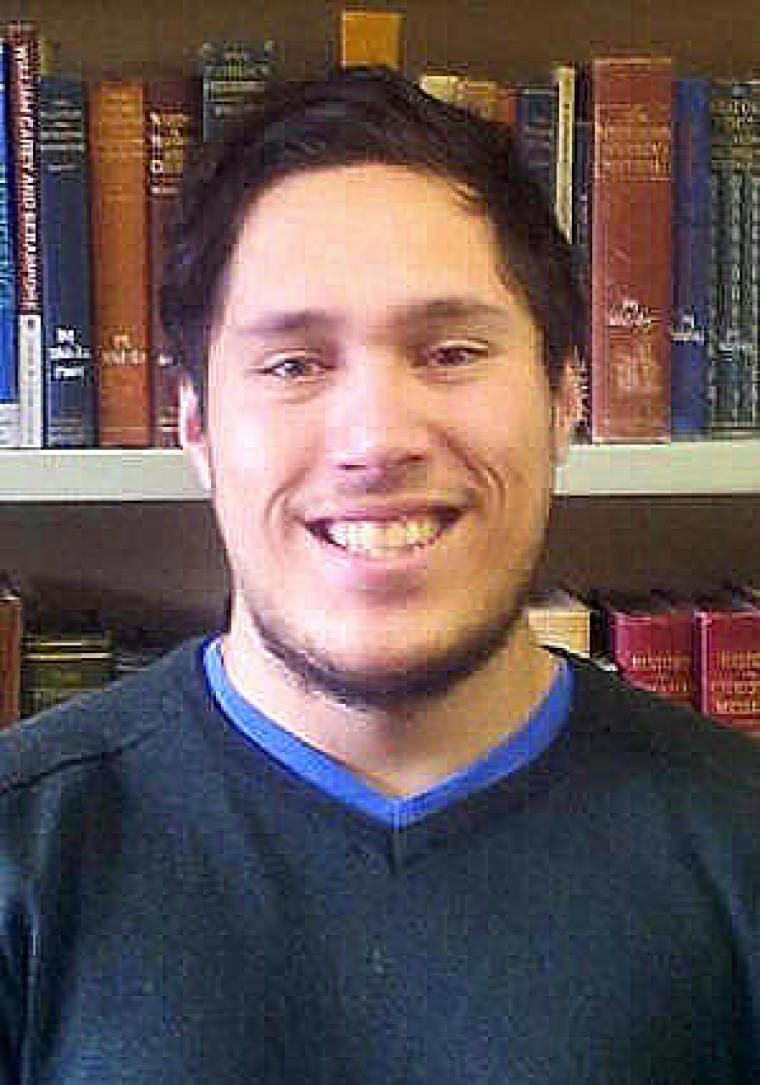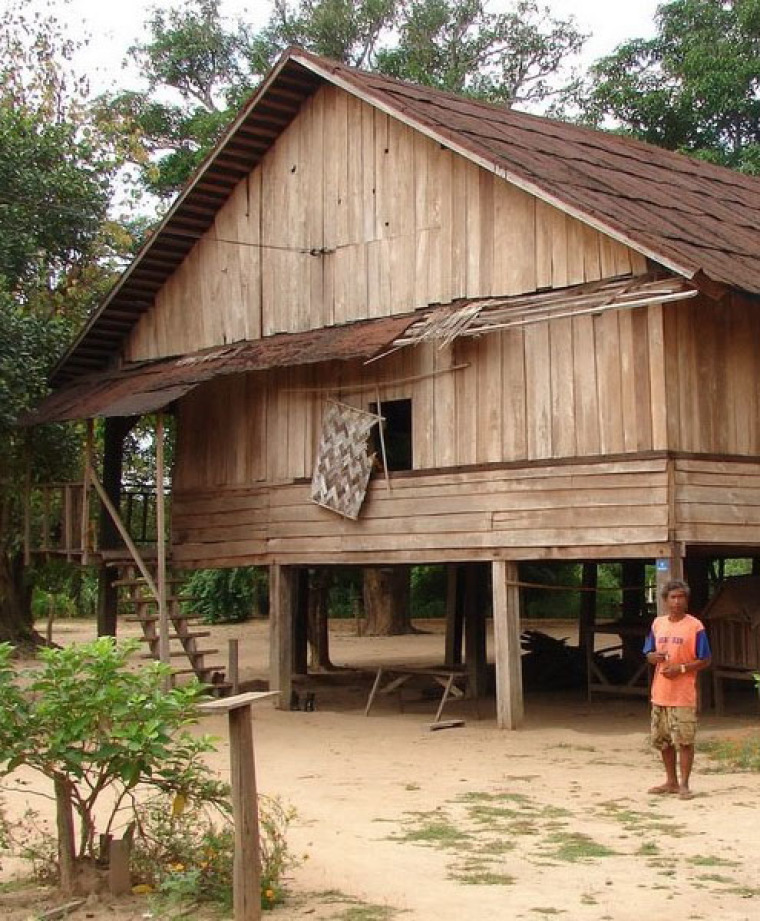

I was driving down State Highway 1 last week on my way to the Promised Land (Hamilton) and as I was driving I saw two men dressed in suits standing on a railway line staring up at the mountain.
I pulled my over on to the side of the road and got out of my car. I approached the two men. As I got closer to them I began to hear their conversation, when I finally stood close to them, they turned to me.
"Can you settle something for us?" they asked, I said of course I can. "Is this mountain alive or dead? We can't tell."
Now this might seem like an unusual interaction to have with two strangers on state highway 1, and that's fair enough because even for my standards this was something out of the ordinary, but not for the reasons you might think. I assume that most of you don't get asked on a regular basis whether or not mountains are living or deceased, and I hedge my bets that very few of you have ever asked yourselves that question. It's about time that you start.
All throughout scripture mountains are referenced as places of worship, sacred places where God often meets his people, or makes his presence known, or in the case of Exodus a place where if you ignore the "keep off the grass" sign you fall down dead (still a little bit tempting). Mountains are constant themes in scripture, there are some who would disregard their appearance in scripture constituting a 'theme' but that is precisely the point.
When we read scripture we apply our myriad of cultural, racial, political, economic, historical and social lenses. When I read scripture, what I am doing is taking my collective prior experience, prejudices, limited historical knowledge, and current social and cultural trends and staring at an ancient text through them. I see some things as relevant and impacting, things that different eyes cannot see, and the same is true for others and what they see that I cannot.
Don't believe me? I knew it! Or maybe you do, either way read on! I read an article during my years at university about indigenous interpretation of biblical texts, specifically Indigenous Native American interpretation.
Examples
I read that the conquest of the Americas by the Spanish had been sanctioned by among many, a prominent philosopher of the time Juan Gines de Sepulveda, on the basis of its similarity to God's war against the Caananites. "He justified the conquest in order to punish blasphemy, but also because the continent was a special donation by God, as the Promised Land. God chose the Spanish to carry out this divine judgment against the infidels and to conquer their lands"
So when Jewish eyes read the Old Testament they see a God who provides, but when Indigenous Americans read the same text, they see themselves as a punished people, scattered and scarred by the Christian God. I can feel the heat from biblical scholars willing me to consider biblical narrative themes and the principals of the text as they apply to the entire world through the salvation of Christ, and that is a fair and valid viewpoint, however so is that of indigenous peoples.
I recently heard Joe Kapolyo (lead minister at Edmonton Baptist Church, London) speak upon the topic of theology. He said "There is no such thing as Theology with a big 'T', rather there are many theologies with a little 't'.
Theology is man's study of God, man's attempt at knowing God and so if it is a discipline originating with man then we bring with it our lenses and baggage to our interpretation of the bible" Meaning, Western theology (or as its called, Theology) is really just one of a myriad of perspectives on God.
Language forms
Wade Davis an anthropologist who works for National Geographic, in a seminar he gave said this. Language is more than a collection of vocabulary, rather it is where a people's metaphysical and spiritual reality is made manifest in the physical world.
To paraphrase, communication is more than the process of speaking and listening, it is instead the process by which that persons spirit and soul is brought into the world.
How a person interprets the world is made clear in their language. Each people's language is what Davis terms an "Old growth forest of the mind" Not only is language a reflection of past experiences, language and ways of understanding the world are also informed by those past experiences.
Consider the ancient forest; a bed of intertwined plants developing for (depending on your creationist views) millions (or thousands) of years alongside distant but related organism's all progressing and interacting with each other, language is similar. Language is the sum total of all thoughts, dreams, intuitions, and ideas of the human race. Language is the bridge between one and two, between centre and other. Indeed language serves as the very basis for every single relationship we humans have, be that to other humans, animals, the environment or God.
So when Native Americans have their land taken and their population subjected to racial and legislative genocide, they take that on into their communication and interpretation of the world that begins to colour how they communicate with God. It is not that they have an incorrect view of the gospel and western theology holds the correct one, nor is the opposite true, that western theology is false and indigenous theology true. Rather we are all right, and we are all wrong.
So why do mountains matter. Because mountains ARE alive, because the child who is told that the mountain outside his doorstep is alive will grow into a radically different child who is told it is a pile of rocks to be mined.
At this point some of you are probably thinking something like this...
"Ok sure, I can appreciate the need to understand the varied ways indigenous or indeed just other people think... but the mountain isn't alive, that is just a quaint and truthfully unintelligent reality of indigenous superstitions"
Age old question
What you are unaware of is that your response assumes that your way of thinking is a-cultural (without cultural bias) and that your definition of 'truth' is THE definition of truth. Well at least you are in good company, the Pharisees thought the same thing.
When we begin to accept the other and otherness as genuine and authentic facets of humanity we begin to get a greater picture of what God has made us to be in our humanity.
When I see how another thinks, and interprets the world, and not out of some token gesture from my place of power, I am gifted with a new frame of reference for the world, for my own life, and for God who created people to be fully who they are.
God created indigenous peoples, and he hears their prayers, in their languages, the way they speak them whether you pray to Yah Weh, Ihu karaiti, 하나님 (Hananim), or Unayklanahi.
Acts 2 verse 4 'All of them were filled with the Holy Spirit and began to speak in other tongues as the Spirit enabled them. 5 Now there were staying in Jerusalem God-fearing Jews from every nation under heaven. 6 When they heard this sound, a crowd came together in bewilderment, because each one heard their own language being spoken' [Emphasis added by writer]
Trent Hohaia is a graduate from Te Whare Wananga o Waikato with a Bachelors degree in Tikanga Maori and Sociology. Fond of embellishments and sometimes outright lies, Trent is in love with his people, and is on a journey of restoration and development for Maori in Aotearoa..
Trent Hohaia's previous articles may be viewed at
http://www.pressserviceinternational.org/trent-hohaia.html